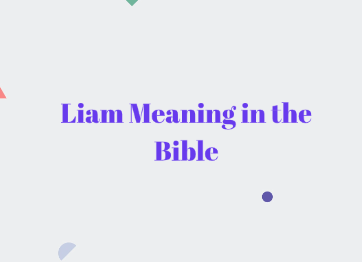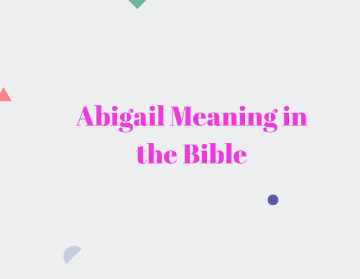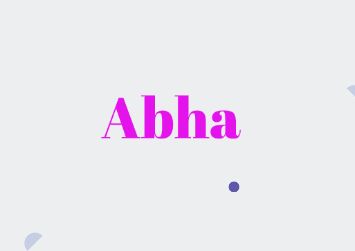Choosing a name for your baby is a significant decision, one that carries with it a sense of identity, culture, and meaning. If you are looking for names that are unique, beautiful, and steeped in tradition, Estonian origin baby names offer a wonderful array of options. Estonia, a small yet culturally rich country in Northern Europe, has a language and naming tradition that is distinct, melodic, and deeply rooted in its history and folklore.
Why Choose an Estonian Name?
Estonian names are often inspired by nature, mythology, and historical figures, reflecting the deep connection Estonians have with their land and cultural heritage. These names are typically short, easy to pronounce, and carry meanings that resonate with strength, beauty, and the natural world. For parents seeking a name that is both unique and meaningful, Estonian names offer a perfect blend of tradition and charm.
Estonian Origin Baby Boy Names
- Alvar - Of Old Norse origin, meaning "elf warrior" or "guardian of all."
- Eerik - Estonian form of "Eric," meaning "eternal ruler" or "ever powerful."
- Karl - A name of Germanic origin, meaning "free man" or "strong."
- Taavi - Estonian form of "David," meaning "beloved" or "friend."
- Raivo - Of Estonian origin, meaning "anger" or "fury," often symbolizing strength.
- Jaanus - Estonian form of "John," meaning "God is gracious."
- Mart - Estonian form of "Martin," meaning "dedicated to Mars" or "warrior."
- Rasmus - Derived from Greek, meaning "beloved" or "dear."
- Tarmo - Of Estonian origin, meaning "energy" or "vigor."
- Uku - A name of Estonian mythology, referring to the god of thunder.
- Toomas - Estonian form of "Thomas," meaning "twin."
- Indrek - Of Estonian origin, possibly derived from "Hendrik," meaning "home ruler."
- Aksel - A variant of "Axel," meaning "father of peace" or "peaceful."
- Harri - Estonian form of "Harry," meaning "home ruler."
- Kaur - An Estonian name, also a poetic word for "swan."
- Rein - Of Germanic origin, meaning "counsel" or "advisor."
- Mihkel - Estonian form of "Michael," meaning "who is like God?"
- Argo - Of Greek origin, associated with the mythological ship "Argo."
- Elmar - Of Germanic origin, meaning "noble" or "famous."
- Kalju - Estonian name meaning "rock" or "cliff," symbolizing strength.
- Veiko - A diminutive form of "Veikko," meaning "brother" in Finnish.
- Vello - A diminutive of "Veli," meaning "brother" in Estonian.
- Silver - Of English origin, meaning "precious metal," symbolizing value.
- Lauri - Estonian form of "Laurence," meaning "from Laurentum" or "crowned with laurel."
- Urmas - Estonian name possibly derived from "Ur" and "Mas," meaning "beginning" and "man."
- Teet - A diminutive of "Theodor," meaning "gift of God."
- Heiki - A diminutive of "Heinrich," meaning "home ruler."
- Tanel - Estonian form of "Daniel," meaning "God is my judge."
- Peeter - Estonian form of "Peter," meaning "rock" or "stone."
- Janek - A diminutive of "Jan," meaning "God is gracious."
- Mait - A name of Estonian origin, possibly meaning "gift of God."
- Joonas - Estonian form of "Jonah," meaning "dove."
- Kaido - Of Estonian origin, possibly meaning "fighter" or "warrior."
- Mati - Estonian form of "Matthew," meaning "gift of God."
- Kaspar - Of Persian origin, meaning "treasurer" or "keeper of the treasure."
- Olavi - Finnish origin, meaning "ancestor’s descendant" or "heir."
- Meelis - Estonian name meaning "desirable" or "pleasing."
- Risto - Diminutive of "Kristo," meaning "follower of Christ."
- Siim - Estonian form of "Simon," meaning "he has heard."
- Juhan - Estonian form of "John," meaning "God is gracious."
- Arvid - Of Old Norse origin, meaning "eagle tree" or "eagle wood."
- Evald - Of Old German origin, meaning "law-power" or "mighty in law."
- Sander - Diminutive of "Alexander," meaning "defender of the people."
- Endel - Of Estonian origin, meaning "one with an end" or "final."
- Ilmar - Estonian name, possibly related to "air" or "sky."
- Voldemar - Of Germanic origin, meaning "famous ruler."
- Andrus - Estonian form of "Andrew," meaning "manly" or "brave."
- Madis - Estonian form of "Matthew," meaning "gift of God."
- Fred - Short form of "Frederick," meaning "peaceful ruler."
- Hannes - Estonian form of "Johannes," meaning "God is gracious."
- Ott - Short form of "Otto," meaning "wealth" or "fortune."
- Jaak - Estonian form of "Jacob," meaning "supplanter" or "holder of the heel."
- Heino - Of Germanic origin, meaning "home ruler."
- Erki - Diminutive of "Erik," meaning "eternal ruler."
- Tarvo - Of Estonian origin, meaning "helper" or "supporter."
- Egon - Of Germanic origin, meaning "edge" or "point (of a sword)."
- Kaarel - Estonian form of "Charles," meaning "free man."
- Tiit - Diminutive of "Theodor," meaning "gift of God."
- Ivar - Of Old Norse origin, meaning "yew tree warrior" or "archer."
- Priit - Diminutive of "Fredrik," meaning "peaceful ruler."
- Raul - Estonian form of "Ralph," meaning "wise wolf."
- Ivo - Of Germanic origin, meaning "yew tree" or "archer."
- Kalev - Of Estonian origin, meaning "hero" or "man of Kaleb."
- Arvi - Of Finnish origin, meaning "eagle ruler."
- Enno - Diminutive of "Eino," meaning "everlasting" or "eternal."
- Ralf - A form of "Ralph," meaning "wise wolf."
- Aivo - Estonian name, meaning "thought" or "mind."
- Tõnis - Estonian form of "Anthony," meaning "priceless" or "of inestimable worth."
- Hendrik - Estonian form of "Henry," meaning "home ruler."
- Heinar - Estonian name, meaning "hay" or "farmer."
- Jürgo - Diminutive of "Jüri," meaning "farmer" or "earth worker."
- Rivo - Estonian form of "Rivo," meaning "clean" or "pure."
- Teodor - Estonian form of "Theodore," meaning "gift of God."
- Laas - Short form of "Nikolaus," meaning "victory of the people."
- Hugo - Of Germanic origin, meaning "mind" or "intellect."
- Merko - Estonian name, possibly derived from "Markus," meaning "warlike."
- Uko - Variant of "Uku," referring to the Estonian god of thunder.
- Veijo - Finnish origin, meaning "brother" or "companion."
- Kristjan - Estonian form of "Christian," meaning "follower of Christ."
- Toivo - Finnish origin, meaning "hope" or "desire."
- Ando - Of Estonian origin, meaning "gift" or "given."
- Andres - Estonian form of "Andrew," meaning "manly" or "brave."
- Taido - Variant of "Taito," meaning "skill" or "ability."
- Villu - Diminutive of "Vilhelm," meaning "resolute protector."
- Tarvi - A variant of "Tarvo," meaning "helper" or "supporter."
- Erich - Germanic origin, meaning "eternal ruler."
- Antero - Finnish origin, meaning "manly" or "brave."
- Jakob - Estonian form of "Jacob," meaning "supplanter."
- Marek - Estonian form of "Mark," meaning "warlike."
- Ahto - Estonian name derived from mythology, meaning "god of the sea."
- Rene - Of French origin, meaning "reborn."
- Mikk - Estonian form of "Michael," meaning "who is like God?"
- Oliver - Of Latin origin, meaning "olive tree," symbolizing peace.
- Roman - Of Latin origin, meaning "from Rome."
- Eero - Finnish origin, meaning "eternal ruler" or "ever powerful."
- Timo - A diminutive of "Timothy," meaning "honoring God."
- Vello - Estonian form of "Wilhelm," meaning "resolute protector."
- Jüri - Estonian form of "George," meaning "farmer" or "earth worker."
- Elo - A diminutive form of "Eloy," meaning "chosen one."
- Raimo - Finnish origin, meaning "wise protector."
Estonian Origin Baby Girl Names
- Annika - A diminutive of "Anna," meaning "grace" or "favor."
- Liis - A diminutive of "Elisabeth," meaning "God is my oath."
- Maarja - Estonian form of "Mary," meaning "beloved" or "wished for child."
- Kristi - A diminutive of "Kristina," meaning "follower of Christ."
- Eeva - Estonian form of "Eve," meaning "life" or "living."
- Kaia - Of Greek origin, meaning "pure" or "chaste."
- Kadi - A diminutive of "Katrin," meaning "pure."
- Mari - A diminutive of "Maria," meaning "beloved" or "wished for child."
- Anu - A diminutive of "Anna," meaning "grace" or "favor."
- Triin - A diminutive of "Katrin," meaning "pure."
- Leelo - Of Estonian origin, associated with "song" or "melody."
- Piret - Estonian form of "Bridget," meaning "exalted one."
- Silja - A diminutive of "Silvia," meaning "forest" or "woodland."
- Karin - A variant of "Karen," meaning "pure."
- Merle - Of French origin, meaning "blackbird."
- Aili - Of Finnish origin, meaning "bringer of light."
- Kristel - A variant of "Crystal," meaning "clear" or "sparkling."
- Maret - A variant of "Margaret," meaning "pearl."
- Leila - Of Arabic origin, meaning "night" or "dark beauty."
- Külli - Diminutive of "Küllike," meaning "full of grace."
- Laine - Of Estonian origin, meaning "wave" or "tide."
- Viivi - A diminutive of "Vivian," meaning "alive" or "lively."
- Riina - A diminutive of "Katrin," meaning "pure."
- Tiina - A diminutive of "Christina," meaning "follower of Christ."
- Heli - Of Estonian origin, meaning "sound" or "melody."
- Reelika - A variant of "Regina," meaning "queen."
- Ene - Of Estonian origin, possibly meaning "one" or "alone."
- Ester - Estonian form of "Esther," meaning "star."
- Maris - A variant of "Maria," meaning "beloved" or "wished for child."
- Maie - A diminutive of "Maria," meaning "beloved" or "wished for child."
- Eha - Of Estonian origin, meaning "dusk" or "evening."
- Ave - Of Latin origin, meaning "hail" or "greeting."
- Marika - A diminutive of "Maria," meaning "beloved" or "wished for child."
- Kersti - A diminutive of "Kristiina," meaning "follower of Christ."
- Janika - A diminutive of "Jana," meaning "God is gracious."
- Tuuli - Of Finnish origin, meaning "wind."
- Katrin - A variant of "Catherine," meaning "pure."
- Merilin - A variant of "Merlin," associated with the sea.
- Sirje - Of Estonian origin, meaning "elegant" or "graceful."
- Inga - Of Old Norse origin, meaning "guarded by Ing" (a Norse god).
- Signe - Of Old Norse origin, meaning "new victory."
- Helje - Of Estonian origin, meaning "light" or "brightness."
- Kertu - A diminutive of "Kerttu," meaning "bringer of joy."
- Lea - Of Hebrew origin, meaning "weary" or "meadow."
- Luule - Of Estonian origin, meaning "poetry" or "verse."
- Õie - Estonian name meaning "blossom" or "flower."
- Meeli - Of Estonian origin, meaning "mind" or "soul."
- Asta - Of Latin origin, meaning "star."
- Merike - A diminutive of "Merle," meaning "blackbird."
- Elle - Of Old German origin, meaning "noble."
- Ülle - A diminutive of "Ülla," meaning "noble" or "exalted."
- Ilme - Estonian name meaning "expression" or "appearance."
- Aino - Of Finnish origin, meaning "the only one."
- Ellu - Diminutive of "Helena," meaning "light" or "bright."
- Maiki - Diminutive of "Maria," meaning "beloved" or "wished for child."
- Aita - Of Estonian origin, meaning "helper."
- Kristiina - Estonian form of "Christina," meaning "follower of Christ."
- Hilja - Of Finnish origin, meaning "quiet" or "calm."
- Veronika - Of Greek origin, meaning "victory bringer."
- Epp - Diminutive of "Evelin," meaning "life" or "living."
- Anete - A diminutive of "Annette," meaning "grace" or "favor."
- Kai - Of Finnish origin, meaning "pure" or "sea."
- Sirli - A variant of "Siri," meaning "beautiful victory."
- Riitta - A diminutive of "Margareta," meaning "pearl."
- Armi - A diminutive of "Armida," meaning "armed" or "ready."
- Kaie - A diminutive of "Kai," meaning "pure."
- Sari - Of Finnish origin, meaning "essence" or "core."
- Hedi - A diminutive of "Hedvig," meaning "battle" or "struggle."
- Elvi - Of Old English origin, meaning "elf strength."
- Maili - A variant of "Maily," meaning "beloved" or "wished for child."
- Marju - A diminutive of "Maria," meaning "beloved" or "wished for child."
- Kaiu - Estonian name meaning "echo."
- Imbi - A diminutive of "Imbi," meaning "dew" or "drop."
- Rutt - Estonian form of "Ruth," meaning "companion" or "friend."
- Annikki - A diminutive of "Anna," meaning "grace."
- Kelli - A diminutive of "Kelly," meaning "warrior" or "bright-headed."
- Annely - A combination of "Anna" and "Lily," meaning "graceful lily."
- Vilja - Of Finnish origin, meaning "grain" or "prosperity."
- Ethel - Of Old English origin, meaning "noble."
- Eleri - A Welsh name meaning "very bountiful."
- Hanna - A variant of "Hannah," meaning "grace" or "favor."
- Jaana - A diminutive of "Johanna," meaning "God is gracious."
- Eneli - A diminutive of "Helen," meaning "light" or "bright."
- Kadri - A diminutive of "Katarina," meaning "pure."
- Helmi - Of Finnish origin, meaning "pearl."
- Marje - A diminutive of "Margaret," meaning "pearl."
- Helga - Of Old Norse origin, meaning "holy" or "blessed."
- Raili - A Finnish name, possibly meaning "advisor."
- Aira - Of Estonian origin, meaning "messenger" or "herald."
- Kalli - Of Finnish origin, meaning "precious" or "dear."
- Helvi - A variant of "Helvi," meaning "safe" or "secure."
- Leena - A diminutive of "Helena," meaning "light" or "bright."
- Eleriin - A variant of "Eleri," meaning "very bountiful."
- Ilona - Of Hungarian origin, meaning "joy" or "light."
- Leenu - A diminutive of "Helena," meaning "light" or "bright."
- Sille - A diminutive of "Sille," meaning "blind" or "wise."
- Milla - Of Latin origin, meaning "industrious" or "eager."
- Adele - Of German origin, meaning "noble" or "kind."
- Sofia - Of Greek origin, meaning "wisdom."
- Ella - A diminutive of "Eleanor," meaning "light" or "beautiful fairy woman."
The Timelessness of Estonian Names
Estonian names offer a unique blend of simplicity, elegance, and meaning. They are often inspired by nature, history, and mythology, reflecting the rich cultural heritage of Estonia. Whether you are of Estonian descent or simply appreciate the beauty and significance of these names, they offer a wide variety of options for parents looking for something distinctive and meaningful.
These names are not only beautiful and unique but also carry with them a sense of identity and tradition. By choosing an Estonian name, you are connecting your child to a culture that values nature, history, and community.
Conclusion
Estonian origin baby names are a wonderful choice for parents seeking names that are both unique and meaningful. Whether you are drawn to the simplicity of names like Anu and Mart or the mythological significance of names like Kalev and Uku, there is something for everyone in Estonian naming traditions. These names are not just a reflection of Estonia’s rich cultural heritage, but they also offer a timeless appeal that will make them a perfect fit for any child. By choosing an Estonian name, you are giving your child a name that is both distinctive and deeply rooted in tradition, ensuring that it will stand the test of time.






